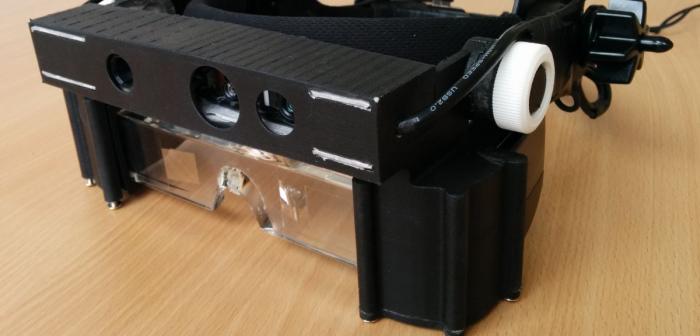“Smart glasses,” which help people with poor vision boost their awareness of what is around them, are being tested in public for the first time. Researchers at Oxford University in the UK are measuring how well their invention can help the near-blind navigate around shopping malls and avoid walking into obstacles.
The aim is to improve functional vision for people with limited eyesight and help them gain “greater freedom, independence and confidence to get about, and a much improved quality of life,” says Dr. Stephen Hicks of Oxford’s Nuffield Department of Clinical Neurosciences, who is leading the development.
Dr. Hicks says he and his team want eventually to have “a product that will look like a regular pair of glasses and cost no more than a few hundred pounds – about the same as a smartphone.”
The glasses are not designed to replace lost vision. Instead, they help the wearer make the most of the vision they have by providing additional information about what is front of them – presented as extra images in the glasses. The glasses receive processed video footage of what is in front of the wearer, which is captured with a camera mounted on the frame.

The frame-mounted camera sends the raw video footage to a small computer that can fit in a pocket, where specially designed software produces enhanced images of nearby objects and sends them to the lenses of the glasses. The lenses are see-through displays so the wearer – with whatever quality of vision they have – can still see their surroundings, but the view is superimposed with the extra images provided by the smart glasses.
The software enhances the outlines of surrounding objects such as people, tables, chairs and kerbs so they appear much more distinct.
[ads1]
Leave a Reply